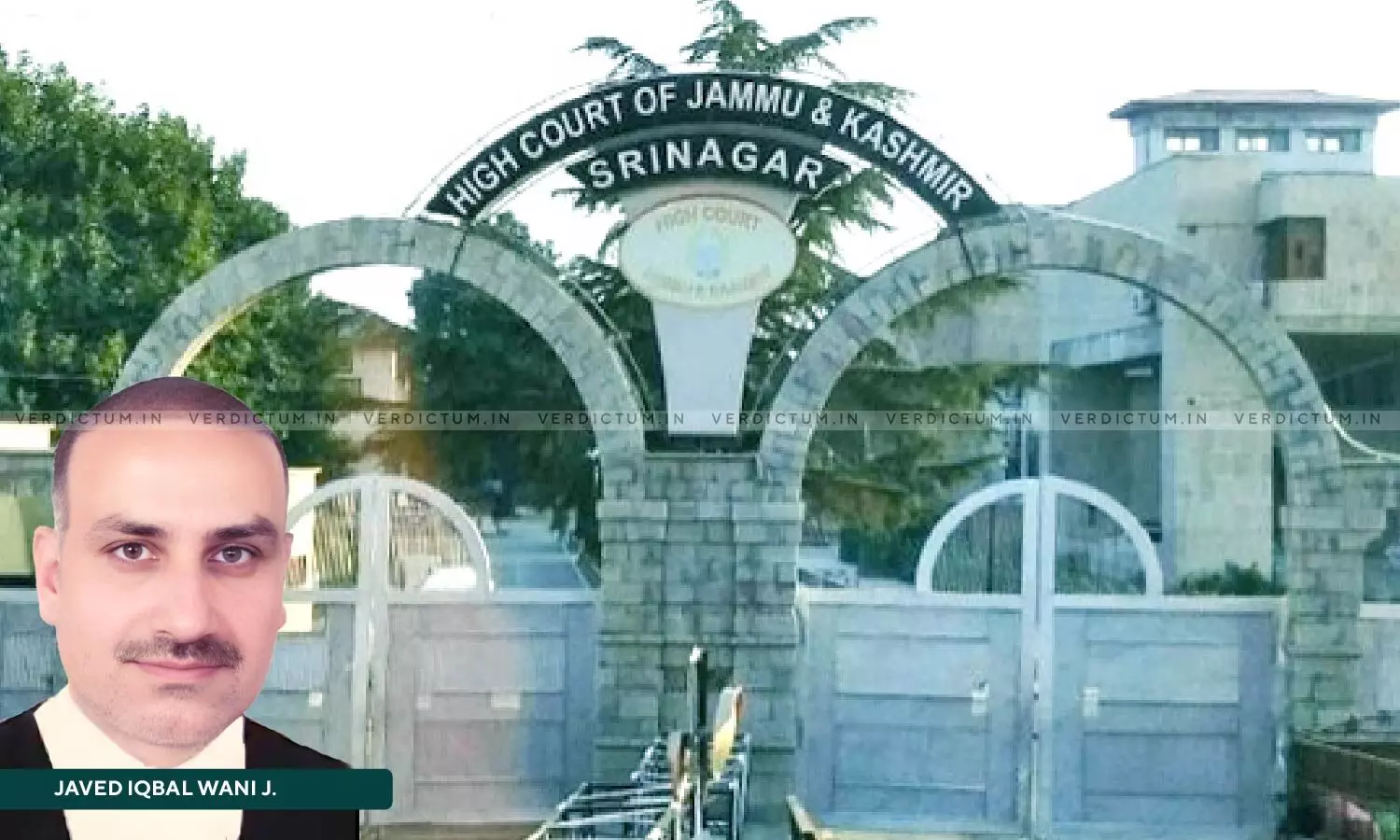
Inherent Powers U/S 482 CrPC Dont Confer Unlimited Jurisdiction; HCs Cannot Examine Facts In FIR: J & K & L HC
 |
|The Jammu and Kashmir and Ladakh High Court held that the inherent powers under Section 482 of the CrPC do not confer unlimited jurisdiction upon the High Courts.
The Bench explained that High courts in the exercise of their powers under Section 482 of the CrPC cannot take a detailed examination of the facts contained in FIR by acting as an appellate court and drawing its own conclusion.
A Single Bench of Justice Javed Iqbal Wani observed, “It is manifest that prima-facie case has been come to exist and found established disclosing the ingredients of offences alleged to been committed by the accused petitioners herein as such, under these circumstances, the court is not inclined to exercise inherent power enshrined under Section 482 CrPC.”
Advocate Shah Ashiq Hussain appeared for the petitioners, while Dy.AG Mubeen Wani represented the respondents.
The Court refused to quash the FIR registered for offences under Sections 341, 354, 323, and 506 of the IPC. The petitioners had filed a petition to invoke the inherent powers of the Court under Section 482 of the CrPC to quash the FIR.
In detailing the events leading up to the FIR, the Court noted the petitioners' claim that the dispute arose over a piece of land. The petitioners alleged that the respondents trespassed on their property, damaged the plinth, and assaulted the petitioner with an iron rod, leading to his hospitalisation. The petitioners further claimed that despite these events, the police initially hesitated to register the FIR, allegedly due to pressure from the respondents.
The Bench referred to the decision of the Supreme Court in Neeharika Infrastructure Private Limited v. State of Maharashtra (2021) wherein it was held that the High Court should refrain from embarking on a meticulous analysis of the case to determine the likelihood of conviction or acquittal. “The High Court should not go into the merits and demerits of the allegations simply because the petitioner alleges malus animus against the author of FIR or the complainant,” the Apex Court held.
In light of the same, the High Court stated that “the court in exercise of inherent power under Section 482 CrPC has only to consider whether the allegations in the FIR disclose commission of cognizable offences or not and that the court is not required to consider on merits whether or not the allegations make out a cognizable offence and that the court is to permit the investigating agency to investigate the allegations in FIR.”
The Bench explained that courts cannot take detailed examination of the facts contained in FIR by acting as an appellate court and draw its own conclusion since that the expressions “abuse of process of law” or “to secure the ends of justice” are the fundamental principles regulating and governing the exercise of inherent powers.
Consequently, the Court did not exercise its inherent powers enshrined under Section 482 of the CrPC holding that the “court has to refuse to interfere or to display indulgence if a prima-facie case is made out disclosing the ingredient of the offences against the accused.”
Accordingly, the High Court dismissed the petition.
Cause Title: Mohammad Akram Rather & Ors. v. UT & Ors.
Appearance:
Petitioners: Advocates Shah Ashiq Hussain and Palvi Ghonkrokta
Respondents: Dy.AG Mubeen Wani; AC Nowbahar Khan